Springtime on the homestead means more daylight, and happier chickens. Happier chickens make more eggs, and thus, we have an overabundance to deal with. In order to have plenty in the fall and winter months, water glassing eggs is the perfect solution.
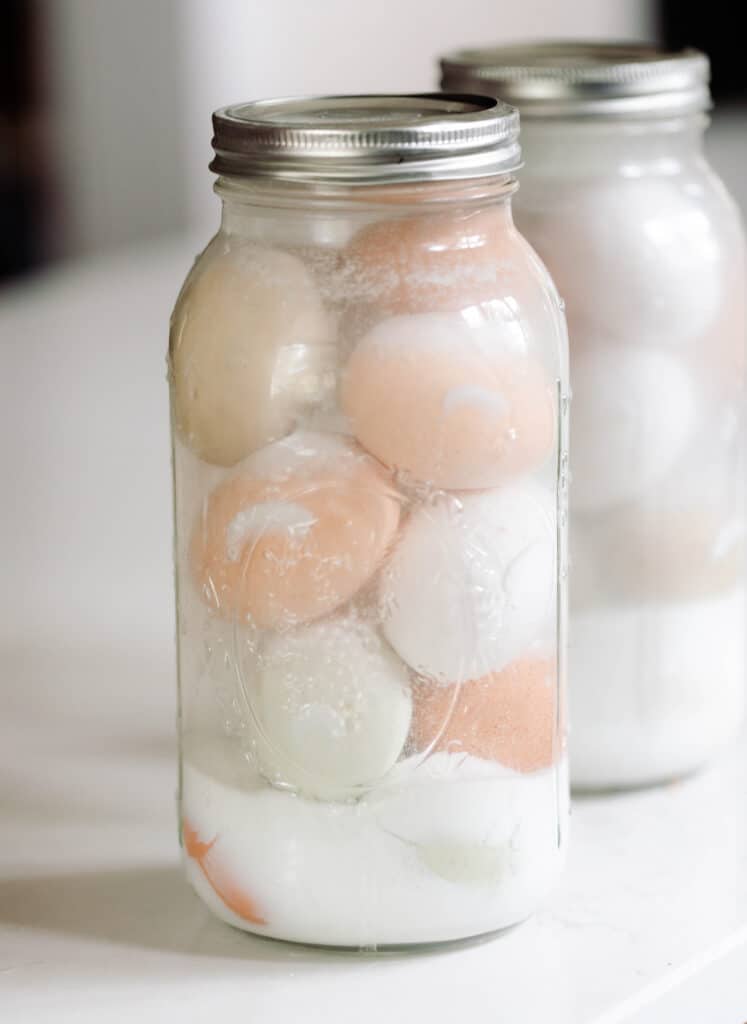
What is Water glassing Eggs?
Water glassing eggs involves submerging clean, unwashed, eggs in a pickling lime and water solution to seal off the shell and preserve them for 12-18 months. The result is perfectly fresh, unspoiled eggs, just like they were the day the hen laid them. Sometimes properly water glassed eggs are still fresh even after two years. Homestead folks have been using this preservation method since the 1800s to capitalize on the springtime egg abundance year round.
There are a few different solutions that work for water glassing, such as sodium silicate and water, but today I am going to share a method for using hydrated lime, which is also known as pickling lime.
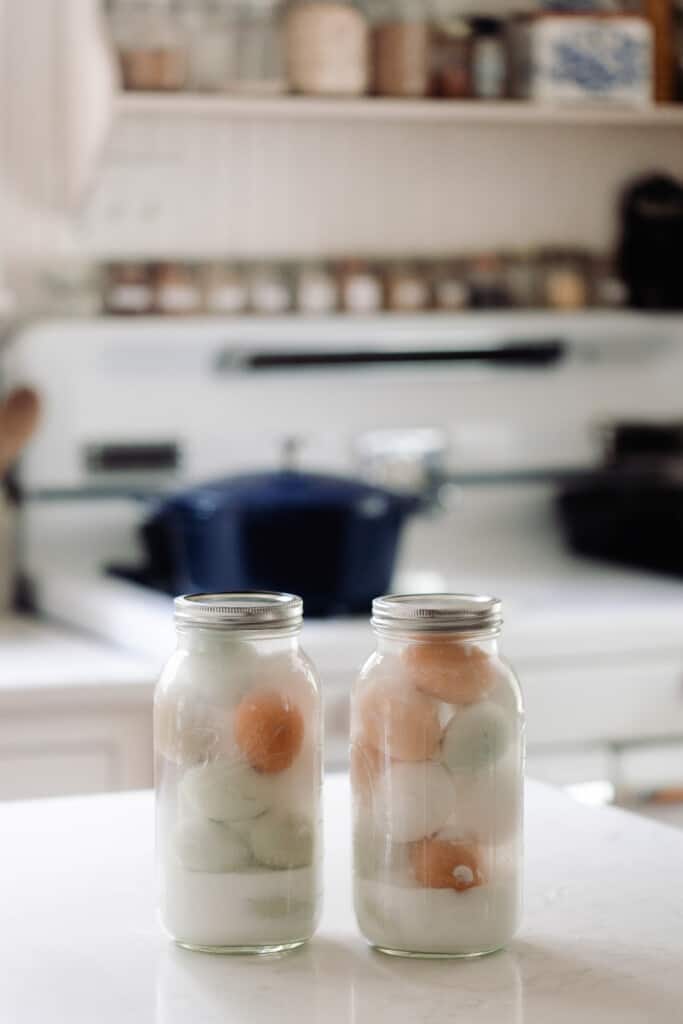
Tips:
You can fit approximately 16-18 eggs per half gallon jar.
Use your cleanest eggs for water glassing. I usually set aside the spotless ones and wait to water glass until I have enough of them. We wash the really dirty ones and store them in the refrigerator. If we keep up with cleaning the coop, and adding fresh straw or bedding, we have a lot more water glass candidates.
If you don’t have a water filter, and you only have access to chlorinated water, you can leave an open jar of water out on the counter for 24 hours. This will cause the chlorine to evaporate.
Use an airtight vessel. Oxygen is the enemy of nearly all food preservation methods, and water glassing is no exception!
Use 1 ounce of pickling lime per quart of water. You can do this in any quantity. So if you have 50 dozen eggs, get yourself some big old food grade buckets and whole lot of lime!
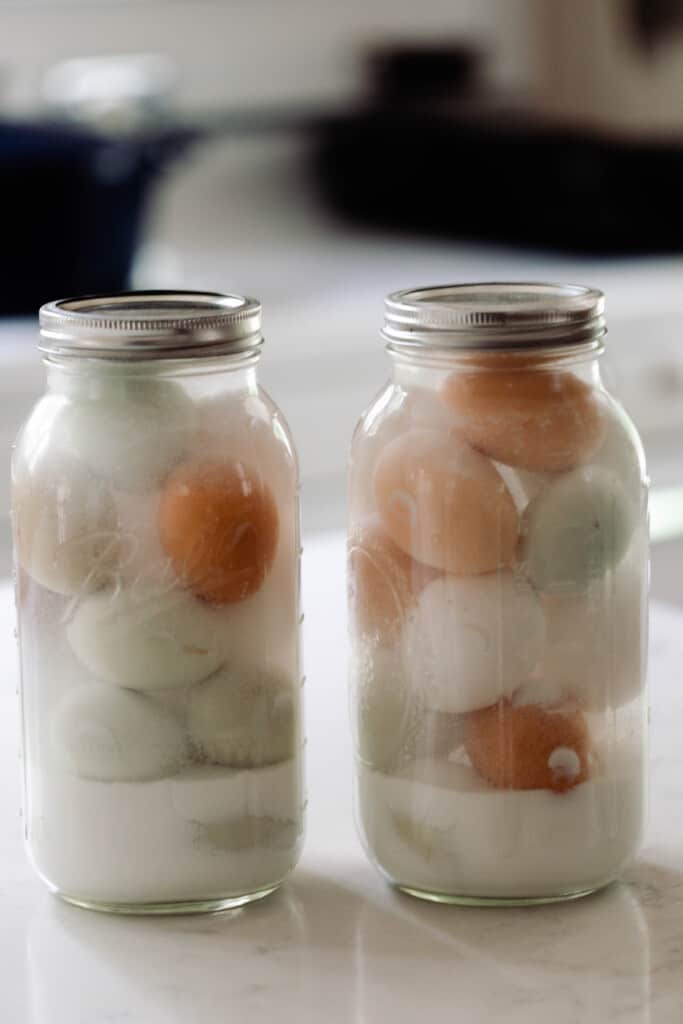
FAQ
Why should you preserve eggs?
We don’t usually think of eggs as a seasonal food, but they actually are. A hen’s ovulation coincides with the length of the day. In the winter, when the daylight hours are short, hens lay little to no eggs. Chickens reach their peak egg laying production when the daylight hours are longest. Heat can also affect ovulation, so springtime, between April and June, yields the highest egg volume here on our homestead. In order to avoid buying several dozen eggs a week in the middle of winter, it makes sense to preserve them when production is up.
Can you water glass store bought eggs?
Unfortunately, no, you cannot water glass store bought eggs. When hens lay eggs, they are covered with a protective “bloom” to keep the eggs fresher longer. This is the reason you can find a pile of eggs hidden somewhere on your homestead after a few weeks, and they are still perfectly fresh and edible. Eggs from the grocery store have been thoroughly cleaned and sanitized, so the bloom is no longer in tact. The lime solution in water glassing works with the bloom to preserve the eggs, so sanitized eggs are a definitee no-go for this method. Try freezing the eggs instead.
Can you use tap water to water glass eggs?
Avoid chlorinated and fluorinated water when water glassing eggs. Ideally you would have access to filtered water that still has all of the minerals intact. If you are on a well, tap water will work just fine. If you are on city water with chlorine and fluoride, opt for a filter, such as the Berkey Water Filter for water glassing eggs.
Can you boil water glass eggs?
You can hard boil eggs that have been water glassed, but it is important to note that you should first poke a small hole in the shell. The hydrated lime solution works by sealing off the egg, and filling all of the pores of the eggshell, so it could actually explode if you don’t first create a release for the pressure.
What is hydrated lime?
Hydrated lime aka calcium hydroxide is a dry and colorless white powder that is most commonly used in steel manufacturing. It is also known as pickling lime or slaked lime.
Can I use garden lime for water glassing eggs?
Garden lime is calcium carbonate, whereas pickling lime is calcium hydroxide. Since the hydroxide is more alkaline, pickling lime is recommended for water glassing.
Is it normal for the lime to settle on the bottom?
Yes, settling lime is a normal part of the process. You may be tempted to stir the solution back up, but don’t do it! You risk cracking the eggs and ruining the whole batch. There is still plenty of lime in the water to preserve the eggs, so no need to worry.
Are water glassed eggs safe to eat?
As long as the process was done properly, water glassed eggs are perfectly safe. Make sure to use clean jars and utensils and clean unwashed eggs. If an egg has gone bad, you will know. The smell will be way off. You can also use the float test to ensure the egg is still fresh.
Do they taste different than fresh eggs?
No! That is the best part about water glassed eggs. Freezing and dehydrating eggs changes the texture of the eggs, whereas water glassing keeps them exactly as they were the day the hen laid them.
When can I preserve farm fresh eggs?
Do you have an overabundance of eggs in the winter for some reason? No worries! You can use water glassing anytime. The eggs also don’t need to be harvested fresh that day. You can wait until you have enough clean ones saved up and do a big preserving day anytime!
Ingredients you will need:
1 ounce pickling lime
1 quart filtered water
Clean unwashed eggs (Eggs that have no poop or mud, and the “bloom” still fully intact)
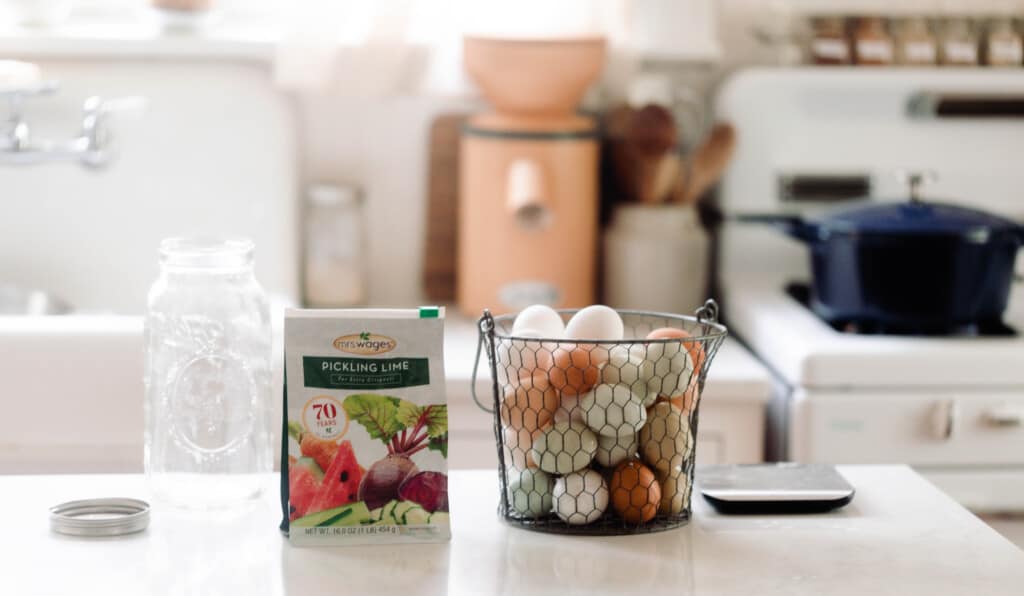
Equipment:
Airtight Food grade bucket or half gallon glass jar
Kitchen scale (to weigh the pickling lime)
What types of eggs can you use:
Chicken Eggs
Quail Eggs
Duck Eggs
Any eggs can we water glassed!
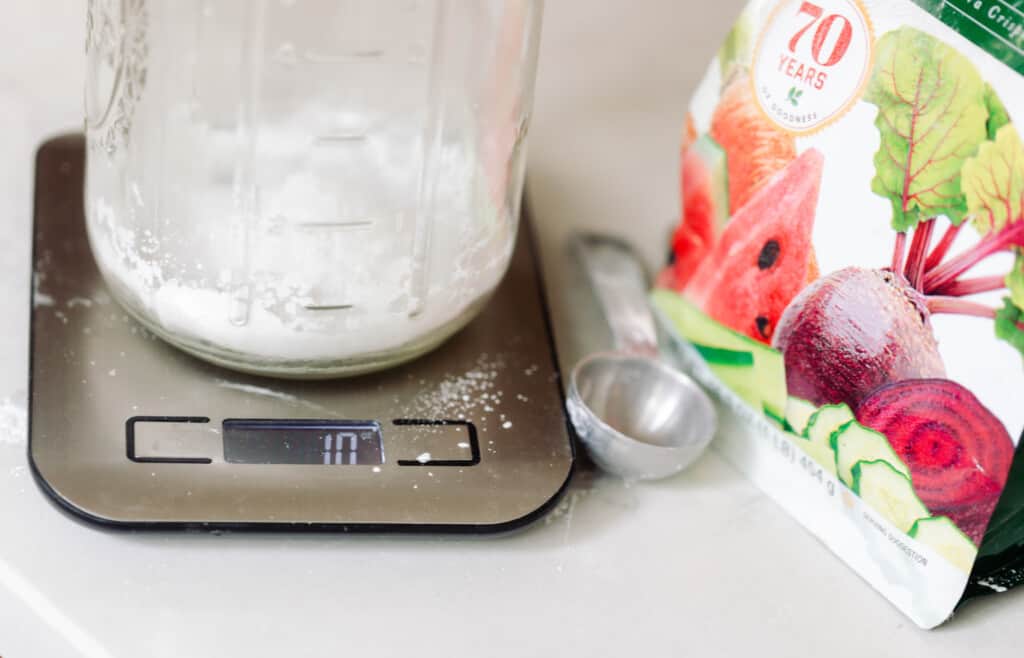
How To Water Glass Eggs:
Measure out 1 ounce of pickling lime on your kitchen scale.
Add the pickling lime to a clean half gallon jar and fill it up halfway (one quart) with filtered water.
Whisk the lime into the water until it is fully incorporated.
Carefully add the eggs pointy side down.
Add an airtight lid to prevent oxygen from getting in, and prevent the water from evaporating.
Store the water glassed eggs in a cool dark place.
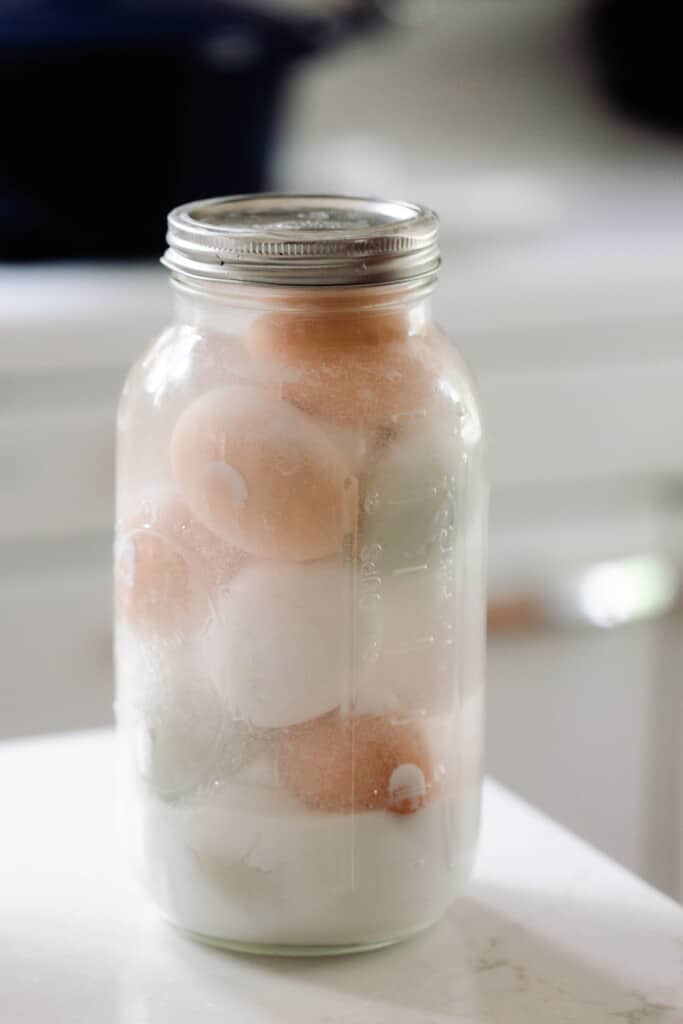
How Long Do They Last?
You can store water glassed eggs in a cool dark place for up to a year. Some people have had success for much longer.
Water Glassing Eggs
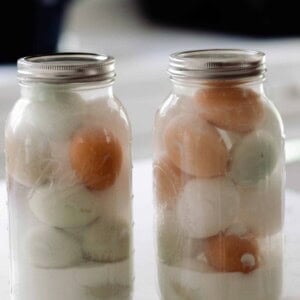
Ingredients
- 1 ounce pickling lime
- 1 quart filtered water
- Clean unwashed eggs, Eggs that have no poop or mud, and the “bloom” still fully intact
Instructions
- Measure out 1 ounce of pickling lime on your kitchen scale.
- Add the pickling lime to a clean half gallon jar and fill it up halfway (one quart) with filtered water.
- Whisk the lime into the water until it was fully incorporated.
- Carefully add the eggs pointy side down.
- Add an airtight lid to prevent oxygen from getting in, and prevent the water from evaporating.
- Store the water glassed eggs in a cool dark place.
Notes
- You can store water glassed eggs in a cool dark place for up to a year. Some people have had success for much longer.
Nutrition
Nutrition information is automatically calculated, so should only be used as an approximation.
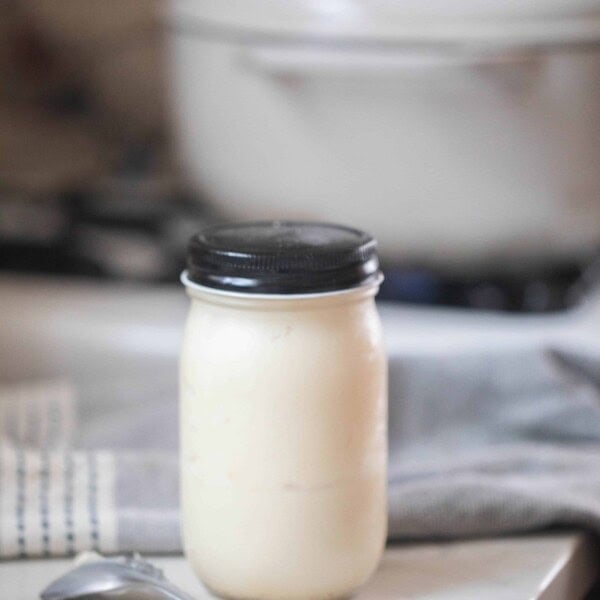
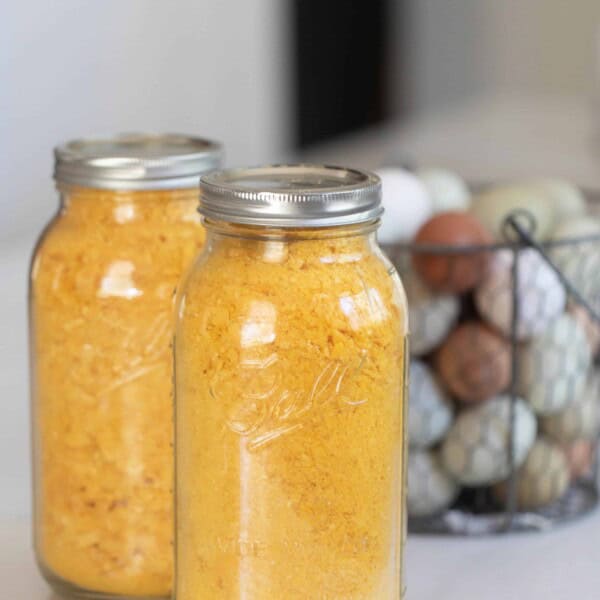
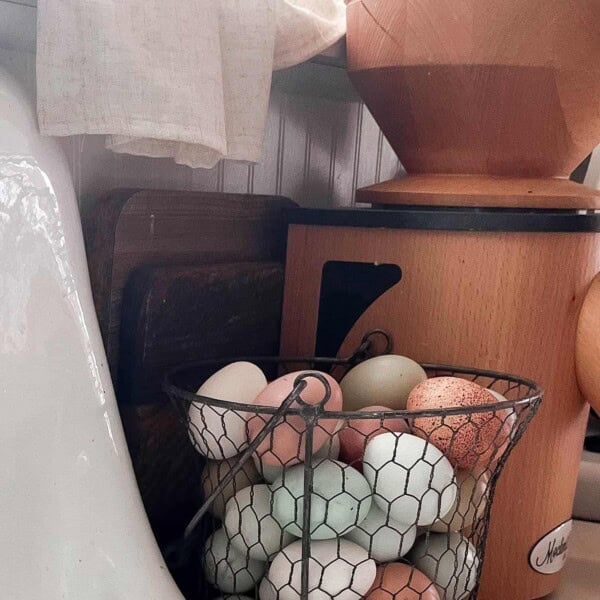
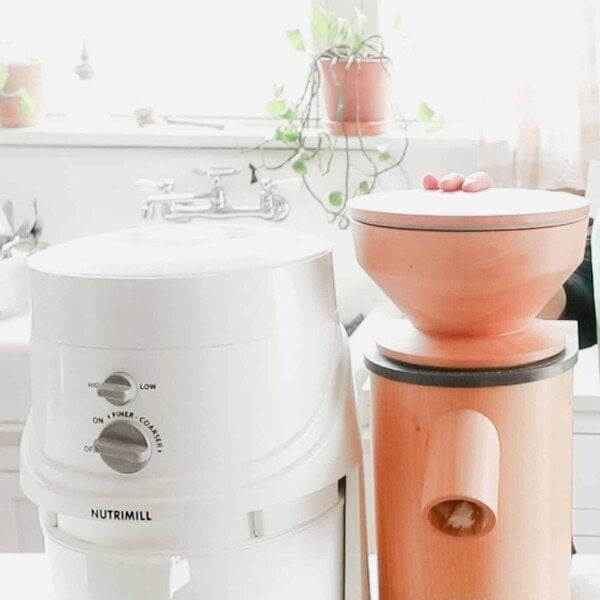






Where do you all buy your lime from? I looked all over for slack, pickling, and hydrated lime but no one had it available. Walmart has pickling lime but it was expensive and tiny packages. Any advice would be appreciated.
You can find it on amazon, although it is pretty expensive. https://amzn.to/3Vp0kYT Azure Standard has it for pretty cheap!
Once you have tightened up the jar can you reopen it to continue to add eggs?
Yes, I believe you can add more eggs.
DISCLAIMER: This is my personal opinion based on my own experiences. Please use your own judgement for your specific circumstance when deciding if any food is safe to consume.
Works wonderfully. I am on my 4th gallon jar of water glassed eggs of 20 I did 7 months ago (oldest to last one 3 MONTHS ago). Be sure to rinse the lime off shell thoroughly, it can make U sick. I generally rinse mine 2 x’s, then towel dry, then place in frig. I ALWAYS float test EVERY EGG each time go to cook as well. U can do this, but, I am changing from gallon jars to quarts, because they are lighter and less Risk 4 me of cracking eggs when transporting to basement, I am VERY CAREFUL when transporting to basement and placing in cardboard boxes on shelves in basement (cool, dark storage) Good luck y’all.
Oh, also……IF ANY EGG IS CRACKED IN U PUT UP JAR…..IR IF THE WATER HAS EVAPIRATED BELIW THE EGGS AT ALL……U MUST THROW THE ENTIRE JAR AWAY; THEY R CONTAMINATED AND CAN MAKE U VERY SICK…..AND AGAIN, ALWAYS, ALWAYS DO A FLOAT TEST BEFORE USING ANY OF THE EGGS……THEY MUST SINK & STAY ON THE BOTTOM……..IF NOT, TRASH THEM😉🐣🐤🐥
Hi, I am just starting water glassing about a month ago, and so far I have several large Mason jars full of about a dozen and 1/2 eggs each. I noticed that one of the jars was cloudy and one of the eggs inside had broken. Do you have a recommendation on what to do with the other eggs from that jar? I don’t think they were contaminated for very long and the solution didn’t smell. I washed them and put them in the fridge for now.
so sorry I missed this! I am sure you already used these eggs or decided to discard them. If a similar situation arises in the future, I would just use them now that they have sat in the water and been in the fridge. The bloom is probably mostly removed at this point, so I wouldn’t repeat the water glassing process with them. I use my nose as an indicator, so if they smell ok I personally would use them.
DISCLAIMER: This is my personal opinion based on my own experiences. Please use your own judgement for your specific circumstance when deciding if any food is safe to consume.
I have a jar of water glassed eggs from about 6 months ago. I’ve done this before and haven’t had issues. This batch does not have a rotten egg smell (I DO know what that smells like!), but rather the water smells ‘fishy’ for lack of a better description. I have not tried to use them yet. Should I toss the whole batch?
I would toss anything with weird smells. Smell is the best indicator of bad eggs.
DISCLAIMER: This is my personal opinion based on my own experiences. Please use your own judgement for your specific circumstance when deciding if any food is safe to consume.
Mine smelled a bit fishy too, I think it’s the lime perhaps? I have a sensitive nose so pick up smells others don’t. My eggs had been in the lime water 15 months. Also, my hens were older and their egg shells were getting thinner so perhaps there was more transference of the lime smell into the eggs?
Once you fill the jar and store the eggs, are you able to get an egg out here and there or do you have to use all of the stored eggs up at once?
Can use one at a time.
The USDA does not endorse water glassing eggs.
Yet, I have documented the procedures.
I will do only if the SHTF.
I too read that water glassing isn’t recommended for to botulism. Yet so many people do it and they say successfully. What is SHTF?
Can you dunk unwashed eggs to clean into 1st jar lime wash then put into 2nd jar lime water to store?
I’m not sure why. The eggs should be clean (without washing) before then go into the solution and wouldn’t need to be dunked into one and stored into another.
Hello! I water glassed 12-5 gallon buckets of eggs this summer. I did come across a website that stated that it is unsafe. My first bucket was in June, and I just opened and scrambled a few of them up, the taste was funny (very bland), and they were runny when I cracked them into a bowl! I am so afraid now that ALL my eggs are bad and I should just chuck them all out. Any thoughts?
How do you use the eggs after they have been in the lime water. Do you wash them off and put in the fridge?
Usually I just wash them and use them right away. Removing what I need when I need it.
I do a bunch at a time and put them in the fridge for others to use. If you’re the only cook in the house, wash as needed works. I may not be the only cook, but I am the designated egg washer! 😂